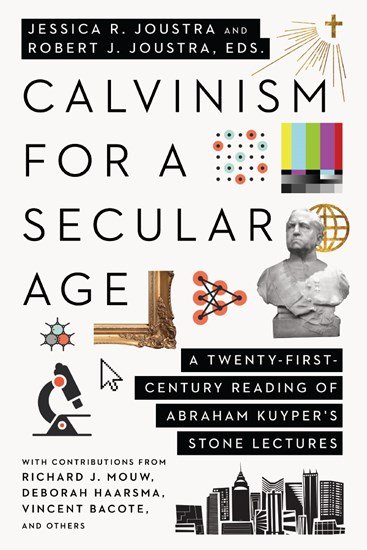Kuyper’s Critique and Cautious Alliance
Allow me to continue my planned series of articles on Abraham Kuyper's sixth lecture, Calvinism and the Future. In my post two days ago, I shared about Kuyper's analysis that, apart from the transformative power of the gospel, the modern era marked by moral and spiritual decay cannot be renewed. Our aspiration for historical and natural evolution is bound to be frustrated.
However, this does not mean that attempts have not been made from various quarters of life. Kuyper identified that within the modern era, "a side current of nobler origin" flows (p. 180). In this article, let me elaborate on my understanding of the nature of this side current. This will cover the next eight pages of the lecture from pages 180 to 187.

Altruism and Mysticism
By “side current,” Kuyper refers to intellectuals and writers reacting to the excesses of modernism and replacing them with altruistic ends, mystical alternatives, and even using the name of Christianity to restore the basis for morality. Even though they still cling to the ideals of the French Revolution and the Enlightenment principles such as empiricism and rationalism, they tried to escape from the dangerous outcome of their principle by following ethical dualism, and thus preserving both conscience and moral aspiration. These efforts, according to Kuyper, inspired sociological reforms, moral literature, and spiritual introspection.
Some theologians, falling under the spell of both altruism and mysticism, mutated Christ not as the divine Savior but as an idealized human, which resulted in a modernized theology, retaining the names but rejecting the underlying basic teachings of the Bible, such as creation, the Virgin birth, the resurrection and the second coming, and the resurrection of the body. Kuyper doesn’t question the sincerity of intention in this theological formulation, whose similarity with orthodox Christianity is only in names. In essence, this new theology departed from historic Christianity. However, he commends these men for attempting to save the modern age from the onslaught of moral decline:
Each and all inspired by sincerity and inspired by their ideal intent, these endeavors may be traced from Schleiermacher down to Ritschl. He, therefore, who would look down upon such men would only dishonor himself. Much rather we ought to thank them for what they endeavored to save, . . . (p. 181).
Nevertheless, despite Kuyper’s appreciation of the contributions of these men, he believes that the modern version of Christianity proposed by these intellectuals is powerless. It has no authority and moral influence, for it reduces sin to underdevelopment, views Christ as a mere genius, and sees redemption as “a mere reversal of our subjective mode of thinking” (p. 182).
A Cautious Appreciation of Roman Catholicism
After mentioning the emergence of ethical and mystical movements and his critique of modern theology, Kuyper shifts his attention to the contribution of the Roman Catholic Church. Though Kuyper affirms the distinctions between Protestantism and Roman Catholicism in doctrines like “ecclesiastical hierarchy, of man's nature before and after the Fall, of justification, of the mass, of the invocation of saints and angels, of the worship of images, of purgatory, and many others,” it would be careless on our part to dismiss the influence of Rome in battling “post-modern” ideas such as Atheism and Pantheism.
Though the history of the Reformation has established a fundamental antithesis between Rome and ourselves, it would nevertheless be narrow-minded and short-sighted to underestimate the real power which even now is manifest in Rome's warfare against Atheism and Pantheism. Only ignorance of the exhaustive studies of Romish philosophy and Rome's successful efforts in social life could account for such a superficial judgment (p. 183).
Moreover, today’s battle lines are no longer the same as in the days of our fathers. For Kuyper, these are the struggles of our time, where Rome is fighting with us.
Theism over against Pantheism; sin over against imperfection; the divine Christ of God over against Jesus the mere man; the cross a sacrifice of reconciliation over against the cross as a symbol of martyrdom; the Bible as given by inspiration of God over against a purely human product; the ten commandments as ordained by God over against a mere archeological document; the ordinances of God absolutely established over against an ever-changing law and morality spun out of man's subjective consciousness (p. 183).
In facing the foregoing issues, Kuyper accepts that Rome is our ally. In the face of modern secularism, we share with Catholics the essential doctrines that are under attack. As such, a wise response should be one of appreciation to embrace the valuable assistance of their studies. Kuyper even quoted Calvin that we should consider Roman Catholics as our allies in fighting “against a spirit from the Great Deep” (p. 184). Kuyper for himself acknowledged his indebtedness to Roman Catholic theologians for the refinement of his thoughts.
Nevertheless, despite Kuyper’s positive affirmation of Catholic contribution, he is not confident that our hope for the future rests in Rome’s hands. He thinks the influence of Rome is diminishing. He cited the socio-political failures of Roman regions such as South America and Southern Europe. These areas are marked by economic stagnation, political instability, and religious decline. From here, he concludes the inability of Rome to bring moral renewal to a declining age.
In short, in the mentioned eight pages above, Kuyper, despite his appreciation of the moral and spiritual aspirations behind modern theological movements and certain Catholic contributions, still insists that true moral and spiritual renewal must come from the historic Gospel of the Savior of mankind, Jesus Christ our Lord!
Grace and peace!
Posted Using INLEO

https://x.com/lee19389/status/1926398662898331735
#hive #posh
https://x.com/jewellery_all/status/1926918174743670986
#hive